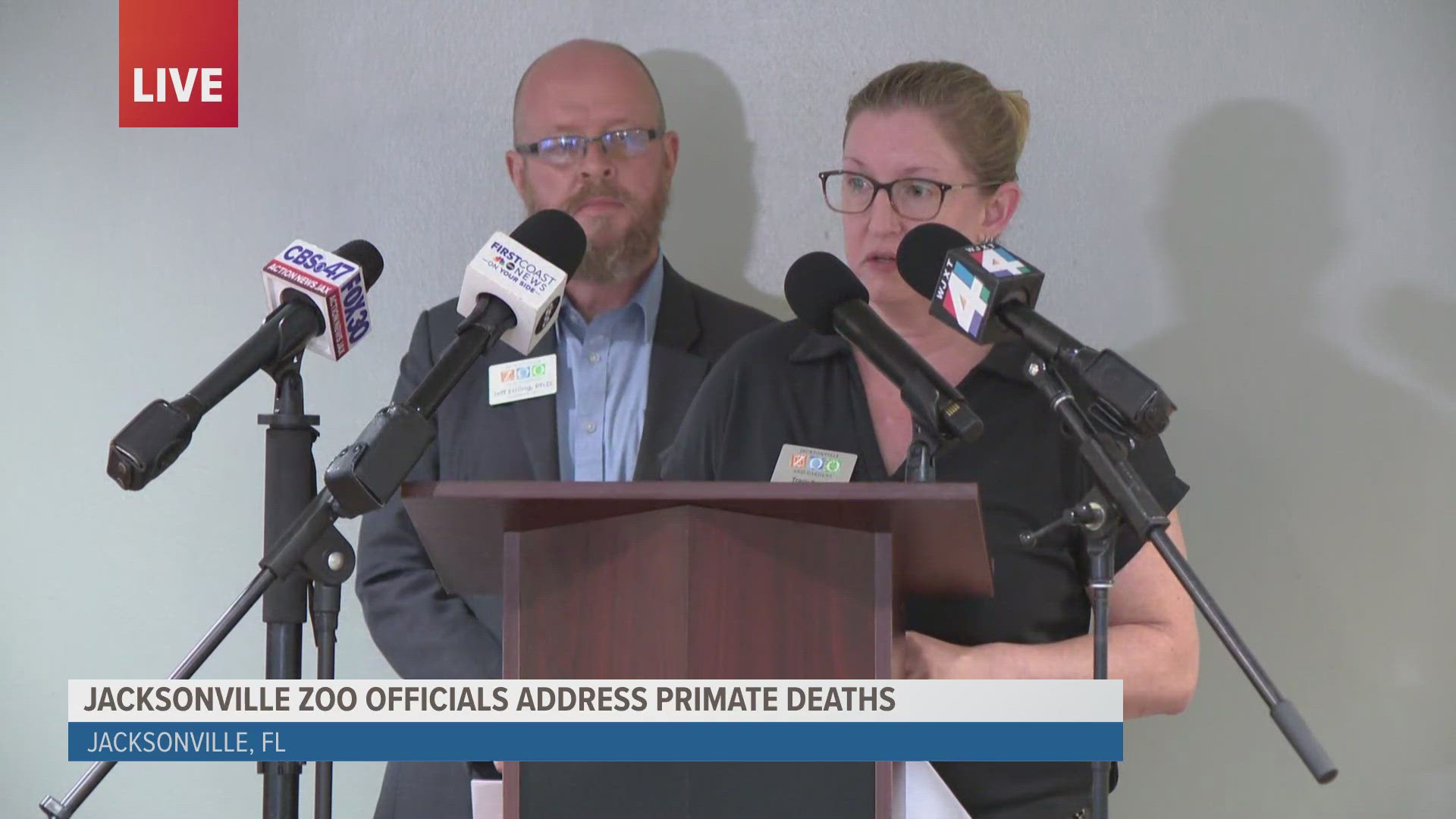JACKSONVILLE, Fla. — After three primates have died within a week from a deadly infection, Jacksonville Zoo and Gardens officials are clarifying the effects of Shigella and preventative measures taken.
Bulera, a 35-year-old female western lowland gorilla, died Thursday. The deaths of Bonobos brothers Jumanji and Jenga were announced on Monday from the same highly contagious disease.
"Our hearts are heavy as we navigate this difficult time, and we are feeling the weight of this grief as we continue to care for the rest of our animals," Dr. Jeff Ettling, the Jacksonville Zoo and Gardens president and chief executive officer, said during a press conference held Wednesday afternoon.
Ettling noted the zoo's director of animal health and head veterinarian were "pulled into an emergency procedure" for one of the affected apes at the time of the conference, and were not present.
The animals died from the effects of Shigella, a bacteria infection that can spread through feces, food or water. Symptoms of the infection include diarrhea, stomach cramps, vomiting and dehydration.
Tracy Fenn, the zoo's curator of mammals, said that while the infection is highly contagious among apes, it does not pose a risk to the public.
"In humans, Shigellosis usually causes mild symptoms that typically go away on their own without antibiotics," Fenn said, emphasizing the experience can be very different for apes.
"Apes are more susceptible to severe gastrointestinal infections that can spread to other organs making it harder to eradicate the infection," Fenn said.
Zoo officials noticed the first signs of infection on Aug. 18, four days before the first animal's death.
"As soon as we recognized the first signs of infection, we implemented strict biosecurity procedures including the use of full PPE, restricting access to affected areas and enhancing sanitation procedures to ensure it's been contained," Fenn said.
Officials said each affected animal is being treated and recovering in different stages, but noted they are closely monitoring the situation.
"Recovery within the apes may be fluid. It may take time to fully resolve," said Fenn. She added the zoo has received additional "expertise and staff support" from other zoo and aquarium institutions across the country.
Because Shigella can affect multiple organs, the infection poses an additional risk to apes with known cardiac disease.
"All three of the deaths we have had so far are animals that had existing cardiac disease," Fenn confirmed, noting several other apes have been treated for the infection and have recovered.
"Even those animals who were sick and have recovered, we are monitoring them very carefully," she added.
Right now, zoo officials have not pinpointed the source of the outbreak.
"Our teams are struggling emotionally, but resilient and determined to carry on and protect the rest of the apes, and save as many lives as we can," Fenn said.

